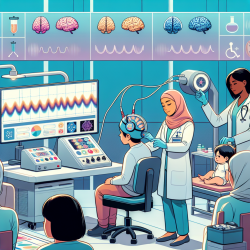Introduction
The implementation of mental health services in low- and middle-income countries is a challenge that requires strategic planning, resource allocation, and continuous evaluation. The research article "Implementation of the mental health Gap Action Programme (mhGAP) within the Fijian Healthcare System: a mixed-methods evaluation" provides valuable insights into how the Fijian healthcare system has adopted the World Health Organization's mhGAP to enhance mental health services. This blog explores key findings from the research and offers guidance for practitioners seeking to improve their skills and implement effective mental health services.
Key Findings from the Research
The study conducted in Fiji highlights several strengths and weaknesses in the implementation of mhGAP. Here are some of the critical findings:
- Value of mhGAP: Health workers found mhGAP valuable and user-friendly, indicating a reasonable level of knowledge and willingness to change.
- Need for Improved Planning and Leadership: The research identified a need for better planning and leadership to strengthen the implementation process.
- Barriers to Access: Stigma and lack of resources were significant barriers to accessing mental health services.
- Importance of an Enabling Context: Creating an enabling context is crucial for the successful implementation of mental health programs.
Strategies for Practitioners
Practitioners can leverage the findings from this research to enhance their mental health services by focusing on the following strategies:
- Continuous Training and Supervision: Regular training and supervision are essential to keep health workers updated and confident in their skills.
- Leadership Engagement: Strong leadership is crucial for driving change and ensuring the successful implementation of mental health programs.
- Resource Allocation: Addressing resource constraints, such as the availability of psychotropic medications and transport, can significantly improve service delivery.
- Community Engagement: Reducing stigma through community engagement and awareness programs can increase access to mental health services.
Encouraging Further Research
While the research provides a comprehensive evaluation of mhGAP implementation in Fiji, it also highlights areas where further research is needed. Practitioners are encouraged to explore the following areas:
- Long-term Impact: Assessing the long-term impact of mhGAP training on health worker performance and patient outcomes.
- Adaptation to Local Contexts: Investigating how mhGAP can be adapted to different cultural and regional contexts for better effectiveness.
- Integration with Other Health Services: Exploring how mental health services can be integrated with other healthcare services for holistic care.
Conclusion
The implementation of mhGAP in Fiji provides valuable lessons for other countries and practitioners seeking to improve mental health services. By focusing on continuous training, leadership engagement, resource allocation, and community involvement, practitioners can enhance the effectiveness of their mental health programs. For those interested in delving deeper into the research findings, the original research paper offers a wealth of information and can be accessed here.










